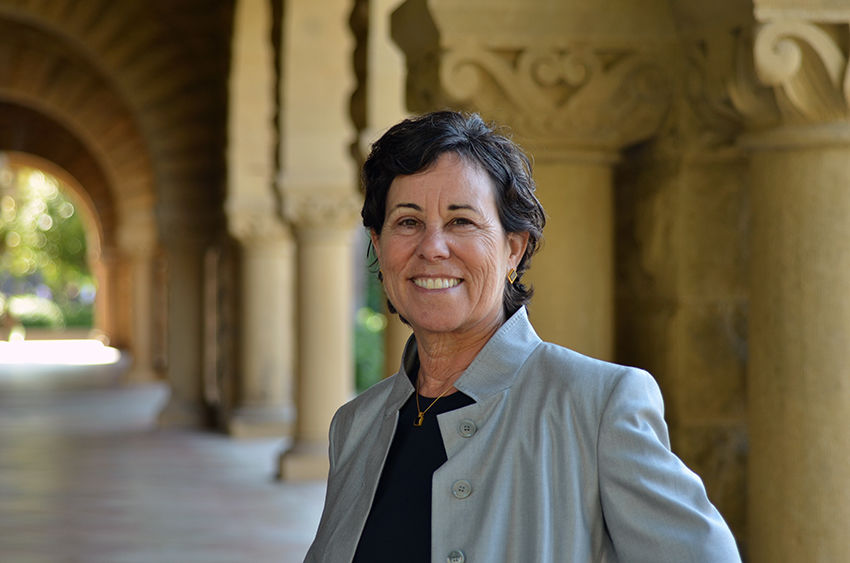“God’s Hotel: A Doctor, a Hospital and a Pilgrimage to the Heart of Medicine” is a 2012 memoir by San Francisco-based physician Victoria Sweet. The subject is Laguna Honda, a long-term Bay Area hospital that for years was known as “the last almshouse in the country.”
When Dr. Sweet began working in the early 1990s at Laguna Honda — “an elegant, though somber, riff on a 12th-century Romanesque monastery” — patients, nearly always poor, could stay as long as they needed to. There was a turret for a resident priest. There were open wards with a solarium at the end. There were nooks and crannies where the patients smoked, drank, played cards, gambled and occasionally had illicit sex. There was a greenhouse, a barnyard and — I kid you not — an aviary.
Perhaps nothing captures the spirit of Laguna Honda more colorfully, in fact, than that for a time the AIDS hospice ward had its own much-beloved hen.
Unhygienic? Maybe. “Although, as a matter of fact,” Sweet writes, “in the months when the AIDS hen roamed the open AIDS ward, she did keep her diseases to herself, as the AIDS patients did for her.”
Inefficient? Certainly. “But there was therapy in her inefficiency. I can’t document the numbers, but it was worth my while to walk into the AIDS ward just to see the spark of interest in those cachectic faces when lunch was served and the AIDS hen began her strut down the ward. It was a spark of life, an extra spark and sparkle that must have extended a life or two by a day or two, which, when you only have a few days left, is worth something.”
Laguna Honda had an old-school lab where the doctors could read their own X-rays and develop their own glass slides. Nurses plumped pillows and arranged the hugely popular Christmas gift swap. One sat at the head of the ward in her spare moments and knit a blanket and booties for each of her 36 patients.
“[Medicine] intrigued me with its possibility of engaging with what Catholics call the last things: death, resurrection, heaven, hell and purgatory,” Sweet realized.
During her time at Laguna Honda, she learned Medieval Latin and earned a Ph.D. in the history of medicine. In the process, she discovered much overlap between Hildegard of Bingen, the 12th-century German nun who wrote a practical medical text, and the mysteries of the body-soul connection she observed in her own contemporary practice.
There was Meng Tam, an elderly, severely demented man who was resurrected from the dead, like Lazarus, through a combination of old-school intuition and modern medicine. The rehabilitation of one mentally challenged couple — Mr. Thomas Teal and Jessie — also elderly, included meeting over cigarettes, falling in love and getting married in the hospital chapel. That chapter is called “Wedding at Cana.”
A true miracle healing took place with Terry Becker, a junkie prostitute who was hopelessly attached to her abusive weasel of a boyfriend, Mike. Every time Terry came to Laguna Honda, Mike would reappear, claim her welfare check and sweet-talk her into leaving early.
After 28 emergency room visits, Terry was admitted to Laguna Honda for the third time, near death. Mike had fractured her skull and broken her leg. She developed a bedsore so deep that when the bandages were changed, her spine was visible.
Terry lay in bed for weeks, months, doing little besides looking out the window and resting.
Sweet writes: “I don’t know when [Terry’s healing] started or how. It wasn’t when [Mike] abandoned her, quadriplegic and wheelchair-bound on the streets of our city, because she let him check her out of the hospital two or three more times after that. I don’t think it had started even when she was admitted with that huge and terrible bedsore. I think it happened after she got to us, before Mike turned up at the first of the month, while she was lying there at the far end of the ward with the window open above her, facedown, for weeks.”
The tincture of time. The seed that grows in the dark. Christ, the great physician: original practitioner of what Dr. Sweet calls “slow medicine.”
This time, Terry threw him out. She quit drinking and smoking, regained her health and was discharged from Laguna Honda 2 1/2 years later.
Eventually, the inevitable happened at Laguna Honda. The corporate suits showed up and started organizing, disinfecting, talking statistics and profit margins. Activists for the disabled objected to the open wards that had created a sense of community and camaraderie for decades, claiming that the patients lacked privacy.
The population downsized. New shiny buildings went up. The turret for the live-in priest, the solariums, the aviary, disappeared.
Laguna Honda lives on, if hobbled by the gatekeepers of hygiene and efficiency.
Would that Sweet’s spirit of medicine waft up to the highest echelons of our “health care” system.
Would that, as I lay dying, some faithful upholder of the Hippocratic oath knows to knit me a blanket — and to bring in a hen.
Heather King is a blogger, speaker and the author of several books.

